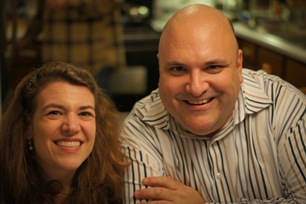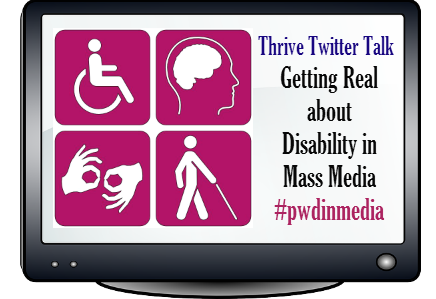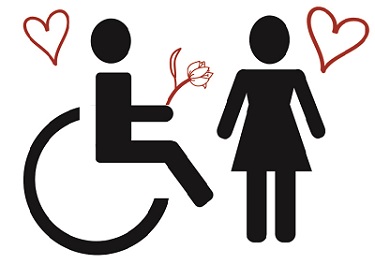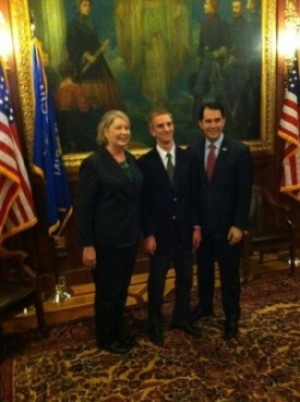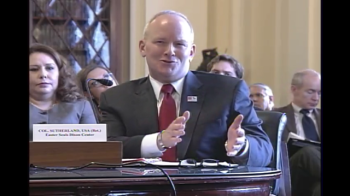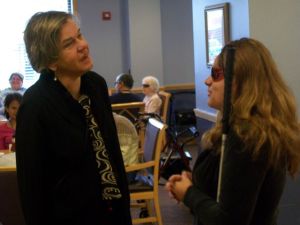by Jackie Orihill
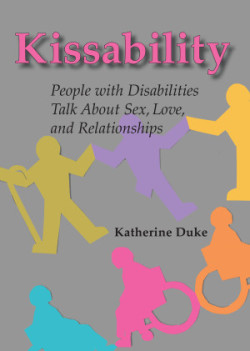 In this abridged excerpt from the nonfiction book Kissability: People with Disabilities Talk About Sex, Love, and Relationships author Katherine Duke shares the moment that prompted her to create the book, which is based on opinions and stories from 40 different people with disabilities around the world.
In this abridged excerpt from the nonfiction book Kissability: People with Disabilities Talk About Sex, Love, and Relationships author Katherine Duke shares the moment that prompted her to create the book, which is based on opinions and stories from 40 different people with disabilities around the world.
Why I wrote Kissability
by Katherine Duke
Kissability grew out of a time when I was concerned — no, I was panicked — about what felt like a vast emptiness where my love life was supposed to be, and about how utterly clueless I was at trying to fill that emptiness. I hadn’t dated since college (hadn’t dated before college, either), and my efforts to start dating again were proving anywhere from disappointing to disastrous. I was facing the very real and terrifying possibility that I would simply never find another romantic partner ever again.
This possibility became the topic of a months-long bout of clinical depression.
I talked to my mother, my sister, and my friends about my concerns, and they did their best to reassure me. Dating isn’t easy for anyone, they said. Your wheelchair doesn’t matter; you have other qualities that people find attractive. You’ll find someone soon.
I couldn’t help but wonder: How do they know?
I appreciated their encouraging words, but they didn’t seem to understand why this issue was troubling me so deeply. How could they understand? None of them had pushed themselves through life in a wheelchair; none of them had any accessory or trait that so obviously marked them, in the public eye, as broken, as deficient.
I’d had cerebral palsy since birth and all manner of therapies, orthotics, and mobility equipment since childhood. I did not dwell in frustration or embarrassment about my CP. I did not wish it away (as I had with, say, my tendency toward depression, which I actually consider more debilitating than the CP). I did not see my disability as a repulsive or tragic flaw. But, as a single young adult, I was painfully aware that many other people, including potential dates and lovers, might see it that way.
Around that time, I happened to get back in touch, through the Internet, with an old friend who, like me, has CP and uses a wheelchair. He sent me a video message asking for an update on my love life. I wrote back and poured my heart out to him, describing my frustrations and fears and a particular humiliating incident that had crystallized them.
Within hours, he sent another video message in response. “Oh my God,” he said. “I was basically reading my story when I was reading your letter, and I can totally relate.”
This man, who was enrolled in graduate-level disability studies courses at the time, went on to speculate that our similar experiences, and our feelings about them, had a lot to do with our disabilities. Disabled people, he said, often have the same impulses and desires as non-disabled people when it comes to sex and relationships, but we don’t always have the same developmental and learning experiences at the same times as everyone else.
My exchange with this friend both comforted and intrigued me as no previous conversation had. I suddenly found myself wanting to talk to lots and lots of different disabled people, to figure out which common threads were — and were not — running through all of our self-images, social lives, and love lives.
I tried searching online for books and forums about disability and sexuality. Most of what I found seemed geared toward medical information and advice. While I’m very glad that such resources exist, they weren’t what I was looking for. Wasn’t there some place, some repository, some project, wherein people with disabilities could just express ourselves — simply share stories and feelings about this area of life?
Where do you go to find support regarding love, dating and relationships among the disability community? Share your insights in the comment section below. And visit easterseals.com/love for love, dating and relationship advice from people living with disabilities and their families.
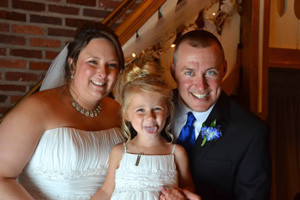 My colleague Jackie Orihill interviewed Chad Cunningham last year for a story in the easterseals.com Love, Dating, Relationships and Disability series, and today we have an exciting update to that story.
My colleague Jackie Orihill interviewed Chad Cunningham last year for a story in the easterseals.com Love, Dating, Relationships and Disability series, and today we have an exciting update to that story.







